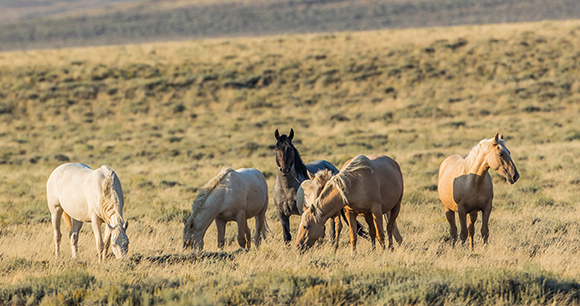Spending bills for the 2025 fiscal year are shaping up in Congress, and AWI is working to ensure animal welfare measures are included. The Senate Agriculture Appropriations report includes first-of-its-kind language directing the US Department of Agriculture to prioritize research and development of nitrogen-based methods of “depopulation” (the killing of animals en masse, usually to control serious disease outbreaks). These methods, used in the United Kingdom, European Union, and Canada, have shown considerable promise in minimizing animal distress and producing a rapid loss of consciousness. In stark contrast, during the current avian influenza outbreak in the United States, the use of ventilation shutdown plus heat (VSD+) has become the norm for depopulating flocks, despite the enormous and prolonged suffering this method entails.
Both the House and Senate Agriculture Appropriations bills retain provisions that block horse slaughter facilities from operating within the United States for another year. Unfortunately, both bills fall short of the administration’s funding request for Horse Protection Act (HPA) enforcement to combat soring abuse in Tennessee walking horse shows. Shortchanging enforcement comes at an inopportune time, as the USDA recently finalized historic HPA regulations—long advocated by AWI—designed to bolster enforcement by transferring compliance monitoring from industry insiders to USDA inspectors and USDA-trained independent inspectors.

On the wild horse front, the House Interior Appropriations report directs the Bureau of Land Management to use a portion of its Wild Horse and Burro Program budget on proven, humane fertility control methods that, if fully embraced, could break the costly cycle of managing wild horse populations via brutal helicopter roundups and mass removals from the range. The bill also continues protections against slaughter and other forms of lethal control for wild horses and burros.